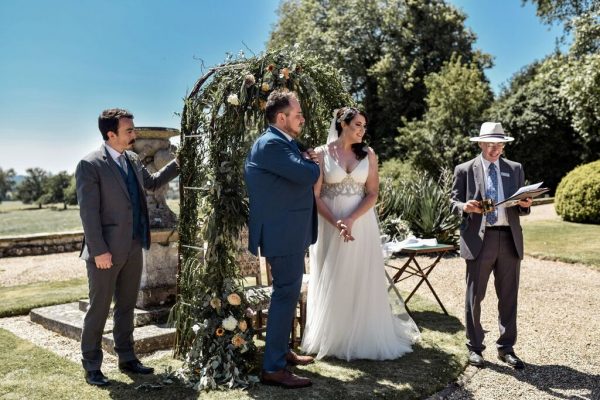If a supplier comes with a recommendation, you are more likely to opt for them. Choosing your Civil Celebrant is no exception.
Confidence
You need to feel confident in your supplier, especially in a field which you have little experience of. Let’s face it (Elizabeth Taylor and Zsa Zsa Gabor aside), few non-professionals have much experience of weddings.
Ideally, you will know someone (and trust their opinion) who has used a civil celebrant. Or you will have seen the celebrant in action. However, that is not that usual, so you need a plan B.
Look at the celebrant’s website and especially the review page. There you can see what the celebrant can do for you. You can also judge if they are likely to be professional and how amenable and friendly they may be.
Once chosen, arrange a call with them. (There’s nothing to stop you doing this with a couple of celebrants, so you can compare offerings.) I suggest making a list of questions that matter to you. You’ll need to know how the civil celebrant operates, their Ts & Cs as well as the cost and what is – and is not – included.
One thing to balance is how willing the celebrant appears to be to give advice against their readiness to listen to your vision and to go with it.
The Process
Not all civil celebrants are the same, obviously, but they are all likely to offer to prepare a draft service and send it to you for your approval. There is likely to be an exchange of emails before satisfaction is achieved, and your input should always be respected.
Once everything has been approved, there may be a rehearsal (depending on the complexity of the ceremony), but the celebrant should arrive on the day an hour or so in advance. Just in case.
The Offering
The details offered by civil celebrants will differ widely. Some may favour an Elvis-style wedding! Others may go for spiritual, pagan elements (this could include handfasting). Still others, may want religious elements (but probably not the whole hog), especially in a mixed-faith ceremony. Then some choose to have a fairly conventional service.
Components of the ceremony that may be chosen include rituals, readings and readers, music, the couple’s story, the vows and the rings; tone and wording can be selected too, so the atmosphere can be broadly light-hearted and informal, if desired.
Hopefully, the civil celebrant never forgets that this is YOUR day and that YOU (not they) should be in the spotlight. Their job on the day is to facilitate proceedings, building the right sort of atmosphere and delivering a fabulous ceremony that will long be remembered.
If you’d like me to help you craft such an occasion, please contact me.
Photo: taraflorence.com

